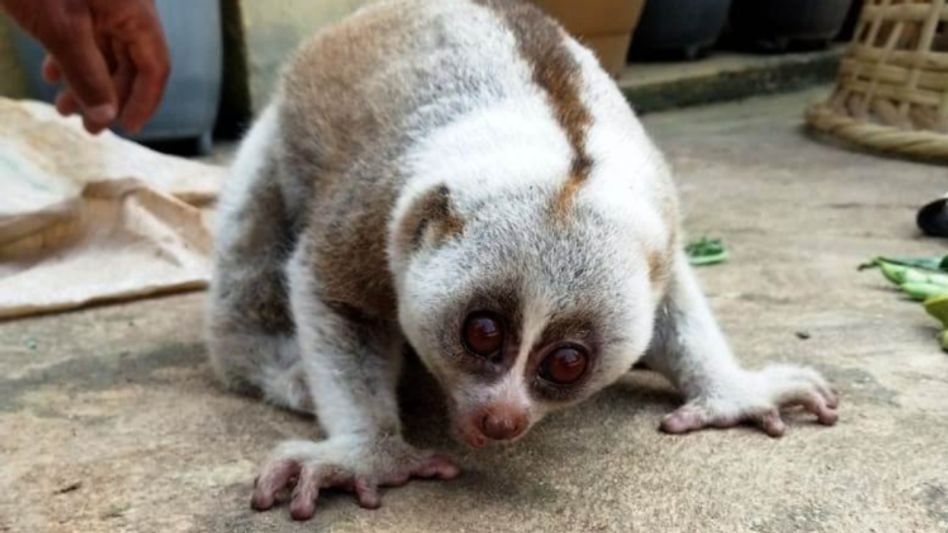Assam: Locals rescue endangered Slow Loris from wetlands of Sonbeel
In yet another instance of wild, reclusive animals being found far from their habitat after a Slow Loris was rescued from Sonbeel in the Karimganj district in Assam.
 Locals rescue endangered Slow Loris from wetlands of Sonbeel
Locals rescue endangered Slow Loris from wetlands of SonbeelIn yet another instance of wild, reclusive animals being found far from their habitat after a Slow Loris was rescued from Sonbeel in the Karimganj district in Assam.
Manoj Kumar Nath of Chotokona village in Sonbeel's Kalibari region was the first to discover the monkey.
As soon as the word got out, a swarm of people gathered to view the animal. After being informed of the event, the Dohalia Forest Division took the monkey to prison.
It is considered that wildlife is pushed to invade public locations as a result of forest devastation. Today, the monkey will be returned to the Barail Sanctuary.
Also Read: Endangered animals rescued from truck on Assam-West Bengal border
Speaking to reporters a local said, "Yesterday night at around 7 pm a boy noticed the monkey in a tree and contacted us. The monkey was brought down from the tree and the forest department was informed about the incident. The forest department came today and rescued it."
Slow Loris is a tiny, nocturnal ape in the Nycticebus genus.
It has a striking look, with wide eyes and a spherical head, and is found throughout Southeast Asia. Slow Loris is noted for their peculiar defence mechanism of secreting a noxious chemical from their elbows that can induce severe responses in predators or humans.
Because of habitat destruction, poaching, and the illicit pet trade, the Slow Loris is categorised as an endangered species. They are frequently kidnapped for use as exotic pets or for traditional medicine, causing their numbers to dwindle. Conservation efforts are being made to keep this intriguing species from becoming extinct.
Slow Loris is a protected species in India under Schedule I of the 1972 Wildlife Protection Act. This implies that it is prohibited in India to hunt, capture, kill, or sell Slow Lorises.
The statute also makes it illegal to possess any component of the animal or its byproducts without the required authorization.
Violations of these rules can result in jail and heavy penalties. Slow Loris has also been designated as a priority species for conservation by the Indian government, and steps have been taken to safeguard their natural environment.
Notwithstanding these efforts, the illicit wildlife trade continues to pose a severe danger to the survival of Slow Lorises in India.
Copyright©2026 Living Media India Limited. For reprint rights: Syndications Today









